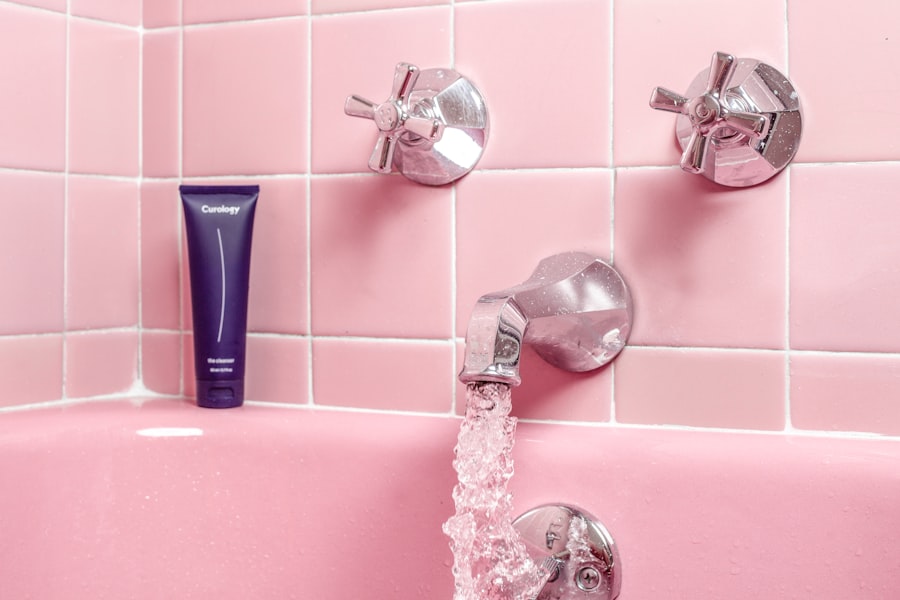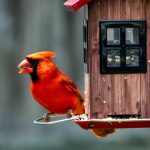Chicken health management requires attention to several key factors. Proper nutrition, including access to clean water and a balanced diet, is essential for maintaining chicken well-being. A safe and comfortable living environment is also crucial.
Regular health checks and vaccinations are necessary to prevent disease spread within the flock. Common health issues in chickens include respiratory infections, parasitic infestations, and nutritional deficiencies. Recognizing the signs and symptoms of these conditions allows for early intervention and treatment.
Understanding normal chicken behavior is important for identifying potential health problems, as changes in behavior can indicate underlying issues. Proactive care and attention to these fundamental aspects of chicken health contribute to a thriving and productive flock. Staying informed about chicken health basics enables owners to provide optimal care and quickly address any emerging health concerns.
Table of Contents
- 1 Providing a Nutritious Diet for Your Chickens
- 2 Maintaining a Clean and Safe Living Environment
- 3 Regular Health Checks and Vaccinations
- 4 Managing Stress and Behavioral Issues
- 5 Protecting Against Predators and Parasites
- 6 Seeking Professional Veterinary Care
- 7 FAQs
- 7.1 What are some basic tips for keeping chickens healthy?
- 7.2 What should I feed my chickens to keep them healthy?
- 7.3 How can I ensure my chickens have clean water?
- 7.4 What measures should I take to maintain a clean living environment for my chickens?
- 7.5 How often should I conduct health checks on my chickens?
- 7.6 How can I protect my chickens from predators?
Key Takeaways
- Regular health checks and vaccinations are essential for maintaining the overall well-being of your chickens.
- Providing a nutritious diet is crucial for keeping your chickens healthy and ensuring proper growth and development.
- Maintaining a clean and safe living environment is important for preventing diseases and promoting good health in your flock.
- Managing stress and behavioral issues in chickens is key to ensuring their mental and emotional well-being.
- Protecting against predators and parasites is necessary to keep your chickens safe and healthy.
- Seeking professional veterinary care is important for addressing any health issues or concerns that may arise in your flock.
Providing a Nutritious Diet for Your Chickens
The Importance of a Complete and Balanced Feed
It’s important to ensure that your chickens have access to a complete and balanced feed that is specifically formulated for their nutritional needs.
Supplementing with Fresh Produce
Additionally, supplementing their diet with fresh produce can provide them with essential vitamins and minerals that may be lacking in their feed. Furthermore, it’s important to monitor your chickens’ food intake and adjust their diet as needed based on their age, breed, and activity level. For example, laying hens may require a different diet than growing chicks or broilers.
Supporting Digestive Health and Egg Production
Additionally, providing access to grit and oyster shell can help support their digestive health and egg production. By providing a nutritious diet for your chickens, you can help them maintain a healthy immune system, strong bones, and vibrant plumage. Overall, a well-balanced diet is crucial for supporting the overall health and vitality of your flock.
Maintaining a Clean and Safe Living Environment

Maintaining a clean and safe living environment is essential for promoting the health and well-being of your chickens. This includes providing adequate space for your flock to roam and ensuring that their coop or housing area is kept clean and free of debris. Regularly cleaning out bedding, removing droppings, and providing proper ventilation can help prevent the buildup of harmful bacteria and ammonia fumes that can negatively impact your chickens’ respiratory health.
Additionally, it’s important to protect your chickens from extreme weather conditions, predators, and potential hazards in their environment. This may involve providing shelter from harsh sunlight or inclement weather, securing their coop with predator-proof fencing or netting, and removing any toxic plants or substances from their surroundings. By maintaining a clean and safe living environment for your chickens, you can help reduce the risk of illness and injury, allowing them to thrive in a comfortable and secure space.
Regular Health Checks and Vaccinations
Regular health checks and vaccinations are crucial for preventing the spread of diseases and maintaining the overall health of your flock. This may involve conducting routine physical exams to monitor your chickens’ body condition, weight, and overall appearance. Additionally, it’s important to keep an eye out for any signs of illness or injury, such as changes in behavior, decreased appetite, or abnormal droppings.
By conducting regular health checks, you can identify any potential health concerns early on and take appropriate measures to address them. Furthermore, vaccinations play a key role in protecting your chickens from common diseases such as Marek’s disease, Newcastle disease, and infectious bronchitis. Working with a veterinarian who specializes in poultry health can help you develop a vaccination schedule that is tailored to the specific needs of your flock.
By staying proactive about regular health checks and vaccinations, you can help safeguard your chickens against potential health threats and ensure that they remain healthy and resilient.
Managing Stress and Behavioral Issues
Managing stress and behavioral issues is an important aspect of promoting the overall well-being of your chickens. Chickens are social animals that thrive in a stable and harmonious environment. It’s important to minimize stressors that can negatively impact their mental and emotional health, such as overcrowding, excessive noise, or sudden changes in their routine.
Providing ample space for your flock to roam, as well as opportunities for enrichment and mental stimulation, can help reduce stress and promote positive behaviors. Additionally, it’s important to address any behavioral issues that may arise within your flock, such as aggression or feather pecking. This may involve providing distractions or toys to redirect their behavior, as well as separating any individuals that may be causing disruptions within the group.
By managing stress and addressing behavioral issues in a proactive manner, you can help create a peaceful and harmonious environment for your chickens to thrive.
Protecting Against Predators and Parasites

Securing the Coop and Run
Predators such as foxes, raccoons, and birds of prey pose a significant threat to free-ranging chickens. It’s important to secure their coop with sturdy fencing or netting to prevent unauthorized access from predators.
Protecting Your Flock at Night
Additionally, providing a secure roosting area at night can help protect your flock from nocturnal predators.
Preventing and Treating Parasites
Furthermore, parasites such as mites, lice, and worms can negatively impact your chickens’ health if left untreated. Regularly inspecting your flock for signs of parasites, such as feather loss or lethargy, can help identify any potential infestations early on. Working with a veterinarian to develop a parasite prevention and treatment plan can help safeguard your chickens against these common threats. By taking proactive measures to protect your flock against predators and parasites, you can help ensure that they remain safe and healthy.
Seeking Professional Veterinary Care
Seeking professional veterinary care is essential for addressing any health concerns or medical issues that may arise within your flock. A veterinarian who specializes in poultry health can provide valuable guidance on preventative care, nutrition, vaccinations, and treatment options for common illnesses. Additionally, they can assist with diagnostic testing and provide personalized recommendations for maintaining the overall health of your flock.
Furthermore, it’s important to establish a relationship with a veterinarian who is knowledgeable about poultry health and welfare. This can help ensure that you have access to professional guidance and support when needed. By seeking professional veterinary care for your chickens, you can help address any health concerns in a timely manner and provide them with the best possible care.
In conclusion, understanding the basics of chicken health is essential for providing your flock with the care and attention they need to thrive. By focusing on aspects such as nutrition, living environment, regular health checks, stress management, predator protection, and veterinary care, you can help promote the overall well-being of your chickens. With proper care and attention, you can ensure that your flock remains healthy, happy, and resilient for years to come.
If you’re interested in learning more about how to care for poultry, you might want to check out this article on how to care for goslings. It provides valuable information on raising and nurturing young geese, which can be helpful for those looking to expand their poultry farming knowledge beyond just chickens.
FAQs
What are some basic tips for keeping chickens healthy?
Some basic tips for keeping chickens healthy include providing a balanced diet, clean water, a clean living environment, regular health checks, and protection from predators.
What should I feed my chickens to keep them healthy?
Chickens should be fed a balanced diet that includes a combination of commercial chicken feed, grains, fruits, vegetables, and access to insects and other protein sources. It’s important to provide them with the right nutrients to support their overall health and egg production.
How can I ensure my chickens have clean water?
To ensure your chickens have clean water, it’s important to regularly clean and refill their water containers. Water should be free from contaminants and easily accessible to the chickens at all times.
What measures should I take to maintain a clean living environment for my chickens?
To maintain a clean living environment for your chickens, regularly clean their coop, nesting boxes, and run area. Remove any waste, old bedding, and debris, and replace with fresh, clean bedding. This helps to prevent the spread of diseases and parasites.
How often should I conduct health checks on my chickens?
It’s recommended to conduct health checks on your chickens at least once a week. Look for any signs of illness, injury, or abnormal behavior, and seek veterinary care if necessary.
How can I protect my chickens from predators?
To protect your chickens from predators, ensure their coop and run area are secure with strong fencing and locks. Consider using motion-activated lights or alarms to deter predators, and supervise free-range time to keep an eye out for potential threats.
Meet Walter, the feathered-friend fanatic of Florida! Nestled in the sunshine state, Walter struts through life with his feathered companions, clucking his way to happiness. With a coop that’s fancier than a five-star hotel, he’s the Don Juan of the chicken world. When he’s not teaching his hens to do the cha-cha, you’ll find him in a heated debate with his prized rooster, Sir Clucks-a-Lot. Walter’s poultry passion is no yolk; he’s the sunny-side-up guy you never knew you needed in your flock of friends!







